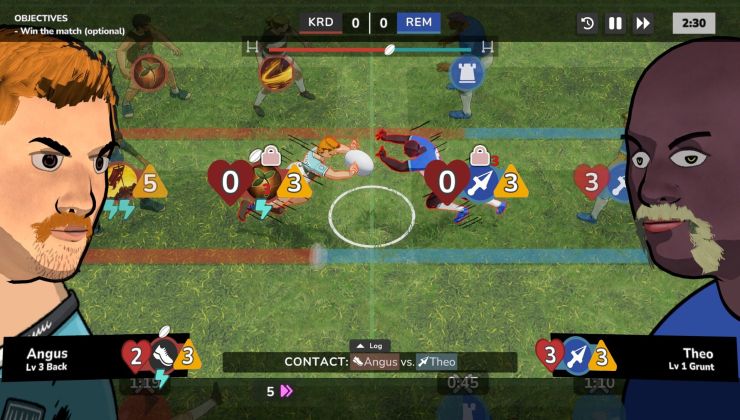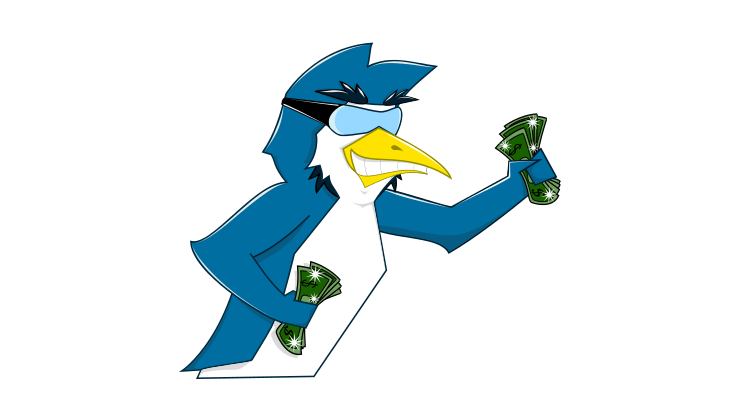If you'll recall from our previous coverage, Unity Software last week came out with a plan to change runtime policies into what could be mistaken for a suicide note. That plan involved game developers paying a fee of up to $0.20 for every game install after the 200,000 lifetime mark and $200,000 a year in revenue. This change would be retroactive as well, for games already released. It was a plan that left devs both asking questions as to the feasibility of tracking every install and being enraged at what would be a death blow to their operations.
The backlash to this scheme was immediate and painful. Indie devs announced they would either be pulling their games or swapping to a new engine. CEO John Riccitiello got put back on the radar as everyone's CEO to hate after he had done so well to avoid the spotlight since ruining EA. Death threats were sent in which forced an office closure. And Unity's stock price plunged in the following days as doubts over the company's future were cast.
In response, Unity sent out a feckless apology last night and promised changes. However, they kept hush about what those changes would be, which only served to open them up to more mockery and hate. Now, as reported by Jason Schreier of Bloomberg, Unity has laid out a tentative plan to try and repair its reputation while still wringing money out of devs.
Unity will now limit fees to 4% of revenue, it will only apply to games making over $1 million and that reaching the install threshold will no longer be retroactive. On top of this, instead of using tracking software, devs will now simply self-report how many installs of a game were made. CEO John Riccitiello also emphasized that this would only affect the top 10% of users, though whether that's true or not remains to be seen.
On the face of it, this is better good news for devs. The problem, at least on Unity's end, is that they've shattered developer trust. How can people trust them to not try and bring those disastrous policies back when no one is looking?
The idea of taking a small share of revenue was something devs had proposed as a potential monetization idea for Unity. If Unity had done that in the first place it would have avoided this whole embarrassing mess it finds itself in. More embarrassingly for Unity, one could assume that the swap to an install reporting scheme seems to be admitting the install tracking was either unfeasible or a bad idea entirely. Which it is a bad idea, and we should all be glad they're dropping it. But simply put, the whole thing has turned into a gigantic mess that could have been avoided if Unity had simply talked with it's users first about these changes to monetization.
As these plans are tentative however, it remains to be seen whether this is the path Unity goes down or not. Regardless, I think it's safe to say that Unity's days as the game engine of choice for many devs are over.
They already trew away any credibility they had.
Hopefully people just move on from the slimy company and be done with it.
Death threats were sent in which forced an office closure.
It's worth being aware that they decided to close their offices after a Unity employee in a different state posted on social media, rather than because of any external game dev ire.
From the linked article:
On September 14, 2023, at approximately 0930am, San Francisco Police Officers assigned to Central Station responded to the unit block of 3rd Street regarding a threats incident.
When officers arrived on scene, they met with a reporting party who informed them that an employee made a threat towards his employer using social media. The reporting party also said that the employee works at an out of state location for the company, but that they had been unable to reach the outside jurisdiction to make a report.
The reporting party was advised to contact the jurisdiction in which the incident occurred, and officers took a courtesy report.
Well, there's hope the Godot ecosystem might profit.
I dislike that it still applies to games previously made in Unity that DID NOT agree to these terms when they made their game. It should be "this is the pricing for new games going forward" - Unity should not be able to go back retroactively to business transactions already made and change them after the fact. Eg, Hollow Knight came out in 2017, Team Cherry paid their 2017 Unity editor subscription fee and did everything required of them according to the deal at that time, they have fulfilled their obligations. Though I can see why they're leaving it retroactive. There probably won't be any new games going forward... this fee on old games is going to be the only income they see out of this. At least much fewer games, anyway. Nobody wants to use Unity anymore.
Self reporting is fine, that's much better than Unity doing invasive tracking. I would like them to change the wording, though. Rather than "installs" I'd like them to say "downloads". I think the distinction is important because installing implies something you track on the user's machine, while downloads is an easy to get number that you track on the server. I would like it to be made very clear that Unity devs aren't expected to roll any kind of telemetry into their games.
Honestly, I would've even accepted 4% flat, just like Unreal, this is actually kinda better.
But like has been said many times... I don't trust them, and I don't intend to ever use Unity again in the future for any projects, no matter what the pricing is. They've demonstrated that they think being a customer with them once is license to screw you at any time in the future going forward forever, and I find that to be an unacceptable liability for doing business. Not to mention that the folks at the helm of the ship have demonstrated themselves to be complete and utter fools, I really don't believe they're going to lead Unity anywhere but decline. I'd rather rely on an engine on the up and up as my game's foundation, if I use someone else's engine at all.
That is how it should have been from the start. If it had been, it wouldn't have been a problem. Irritating, but not outright ruinous. At the start, there would have been enough goodwill to accept this version. Now though, they have burned ALL their bridges, there is no good will left to give them the benefit of the doubt. A correct move, but too little too late, tbh. That they thought this would be okay to begin with is a way bigger problem than the policy itself, and I don't have any reason to believe they won't come up with similarly awful ideas in the future.
Unity can't be trusted with my livelihood.
Unitas delenda est
or
Unitas ludus machinam delendam esse
It was, after all, what one might call one of the earliest examples of a "meme". Though, the term didn't exist until a certain British biologist coined it in 1973.
Spoiler, click me
Plus, an internet meme is a slightly different concept.
They've clearly shown that greed bests common sense and trustworthyness in the board and the CEO, so it would still be a risky move to choose unity for new projects. Who knows what other bullcrap unity comes up with during the years of development you need till the game is released?
Unreal Engine's pricing is 5% flat for all revenue over a million dollars, so that's even technically a better price, which is nice.
Do you think that Epic could have managed that pricing without their Fortnite income?
Rather than "installs" I'd like them to say "downloads".
That doesn't help. It still means that Unity's fees per sale are uncapped, making it impossible to budget.
Unity can't be trusted with my livelihood.
It's another one of those "all eggs in one basket" examples. After Unity there are still many of those left.
Considering how the people at the top sold so much of their stock prior to the announcement, they knew what the reaction would be like. I suppose it's possible they underestimated it figuring themselves too big to fail.
Hopefully people just move on from the slimy company and be done with it.
I'm really hoping they get charged with insider trading offense.
Besides the meme, that is a maneuver from behemoth companies that damage the reputation on a way it can't be easily regenerated...
Last edited by nwildner on 19 Sep 2023 at 2:36 pm UTC
Seems like so many tech companies lately are making hair brained greedy decisions, I'm used to them doing that but not so soon ome after another... Is this an effort on the part of the rich sorts to consolidate their wealth before the recession hits hard? If so they need to cut it out, just making things worse like the TP panic buyers. Wait... it was only really worse for those who didn't panic buy.[Here's r/gachagaming (yes…) discussing this trend](https://www.reddit.com/r/gachagaming/comments/16guprn/comment/k0a5njl/). Interest rates rising after COVID are mentioned down the thread as a cause of such pressure. I don't know if it affects publicly traded companies the same way as pre-IPO startups. Unity could have done well for itself building a popular engine, but it wanted to corner the market, spent money in unreasonable ways (billions on acquiring movie effect companies, a hundred million a year on its top executives…). Now it's suddenly finding debts are expensive and trying to squeeze everybody else.
If yes: That's going to go just fiiiiine on the European market, especially for small indies that don't have a permanent legal team.
The modern way of big business is all about debt. If you want to make money, you could invest money you have and make a return on it. But if you can take on a lot of debt and invest money you don't have, that would mean you're making a return on a lot more money. As long as you can make sure the returns you're making are a higher rate than the interest you're paying on the debt, you're ahead. And greedy people are often optimistic about this stuff. Then they're either wrong about the rate of return, or interest rates go up, or both, and they're underwater. Or rather, the company they're associated with is underwater; the actual people probably take huge bonuses and compensation packages and a few other clever forms of remuneration from the corpse of the company before they jump to the next scam--limited liability FTW.Seems like so many tech companies lately are making hair brained greedy decisions, I'm used to them doing that but not so soon ome after another... Is this an effort on the part of the rich sorts to consolidate their wealth before the recession hits hard? If so they need to cut it out, just making things worse like the TP panic buyers. Wait... it was only really worse for those who didn't panic buy.[Here's r/gachagaming (yes…) discussing this trend](https://www.reddit.com/r/gachagaming/comments/16guprn/comment/k0a5njl/). Interest rates rising after COVID are mentioned down the thread as a cause of such pressure. I don't know if it affects publicly traded companies the same way as pre-IPO startups. Unity could have done well for itself building a popular engine, but it wanted to corner the market, spent money in unreasonable ways (billions on acquiring movie effect companies, a hundred million a year on its top executives…). Now it's suddenly finding debts are expensive and trying to squeeze everybody else.
Then they're either wrong about the rate of return, or interest rates go up, or both, and they're underwater. Or rather, the company they're associated with is underwater; the actual people probably take huge bonuses and compensation packages and a few other clever forms of remuneration from the corpse of the company before they jump to the next scam--limited liability FTW.
Still no problem, at least if you're "too big to fail". Just ask for taxpayer bailout money and carry on gambling.
This is the usual case of the larger entity which everyone has become to depend on thinking "Well, everyone needs us now. We shall ramp up our prices and earn more money, they can't do anything about it anyway!". (Swapping out game engines is a big task)
It is also why I personally felt it was a mistake for CDPR to switch to unity from their own engine (Red Engine), for precisely this reason.
I mean that absolutely building your own engine is hard, it is a lot of work and it takes a lot of maintenance, without a doubt. But it is better than being tied to another business in such a way that your entire product depends on them.
I guess I'm just old at this point, where we wanted things our way and not dependant on another entity.
/me carries on rambling like a drunk old man.












 19 Sep 2023
19 Sep 2023



 How to set, change and reset your SteamOS / Steam Deck desktop sudo password
How to set, change and reset your SteamOS / Steam Deck desktop sudo password How to set up Decky Loader on Steam Deck / SteamOS for easy plugins
How to set up Decky Loader on Steam Deck / SteamOS for easy plugins
See more from me